Some People Believe that Reading Stories from a Book is Better than Watching TV - IELTS Writing Task 2
8 min read
Updated On
-
Copy link
Master IELTS agree/disagree essays with topics like 'Some People Believe that Reading Stories from a Book is Better than Watching TV', using sample essays, an outline, and key vocabulary. Learn how to present a well-rounded answer for Band 7 and above.
Table of Contents
- Essay Question for Some People Believe that Reading Stories from a Book is Better than Watching TV
- Outline for IELTS Agree/Disagree Essay
- Sample Answers for Some People Believe that Reading Stories from a Book is Better than Watching TV IELTS Writing Task 2
- Vocabulary to Use for Some People Believe that Reading Stories from a Book is Better than Watching TV - IELTS Writing Task 2

Predicted Cue Cards Topics 2024
With easy access to online games and social media, children nowadays are moving away from reading. However, some argue that reading stories from books provides greater developmental benefits. This debate is the reason why IELTS Agree/Disagree essays, like ‘Some People Believe that Reading Stories from a Book is Better than Watching TV’, have become the most common type of question in IELTS Writing Task 2.
In this article, we examine sample answers for the IELTS agree-disagree essay on the topic ‘Some People Believe that Reading Stories from a Book is Better than Watching TV’, along with an outline and relevant IELTS vocabulary, which is crucial for achieving a high band score.
Learn how to write the perfect IELTS Agree/Disagree essay for Band 9 score with the guide below!
Essay Question for Some People Believe that Reading Stories from a Book is Better than Watching TV
Some people believe that people who read books can develop more imagination and language skills than those who prefer to watch TV. Do you agree or disagree?
OR
Some people believe that reading stories from a book is better than watching TV or playing computer games for children. To what extent do you agree or disagree?
Give reasons for your answer and include any relevant examples from your own knowledge or experience.
You should write at least 250 words.
Outline for IELTS Agree/Disagree Essay
When you receive this type of essay question, the examiner expects a clear opinion with logical development. You can either completely agree, completely disagree, or present a balanced opinion, but your stance must be consistent throughout. Given below is the outline that will help you to understand how to write agree-disagree essays in IELTS.
|
Sample Answers for Some People Believe that Reading Stories from a Book is Better than Watching TV IELTS Writing Task 2
Each of the three essays addresses the IELTS Writing Task 2 topic, 'Some People Believe that Reading Stories from a Book is Better than Watching TV'. Therefore, to achieve your desired writing band score, ensure that you carefully examine the three IELTS Band 9 essay samples given below.
Some People Believe that Reading Stories from a Book is Better than Watching TV - Sample Answer 1 (Disagreement)
While it has been said that reading books for pleasure rather than watching TV is more beneficial for one’s imagination and acquiring language skills, I contend that the role of the former in boosting intelligence and language ability is equal to the latter.
One the one hand, books are instrumental in enhancing children’s imagination and development. A kid reading a fairly tale with illustration will have to think, fantasize and use their creativeness to comprehend ideas and reasoning, which in turn sharpen their mental skills. Moreover, reading books helps to improve language skills. Spending time reading a book which is not written in our mother tongue leads to the development of a strong language base referring to its vocabulary, or comprehending meaning of a word in different contexts. Besides, reading out a book for children is also an effective way to help them improve their communication skill, which is greatly stimulated as the kids grab a spoken word and use it in daily conversations.
On the other hand, watching TV is considered an important activity as reading in order to cultivate one’s imaginativeness regarding its characteristics of programs. Firstly, when audiences watch a tourism channel for example, they are exposed to a wide range of knowledge by seizing images of worldwide landscapes or feel tastes of specialties in various geographical regions. The broadcasting of quiz shows serves as an efficient learning tool for both children and adults who prefer taking challenges which involve critical thinking. Secondly, the role of TV in boosting linguistic competence is pivotal. Recent English programs not only support audience to remember words easily by associating them with vivid images shown on the screen but catch their constant attention with entertaining aspects.
In conclusion, while the benefits of reading are undeniable, they cannot outweigh the role of TV in enhancing a person’s imaginativeness and language skills.
Don’t wait to solve your IELTS queries?
Book IELTS online classes & discuss with the IELTS experts NOW!
Some People Believe that Reading Stories from a Book is Better than Watching TV - Sample Answer 2 (Agreement)
In an era dominated by screens, many parents and educators question the best approach to early childhood development. Some people firmly believe that reading books is superior to watching television or playing computer games. I completely agree with this view as reading offers numerous developmental advantages for children.
Reading is instrumental in building linguistic competence, vocabulary, and critical thinking. When a child reads a fairy tale, they are not only absorbing language but also fantasising and developing their imaginative thinking. Unlike visual media, books require children to visualise scenes, characters, and plotlines, which enhances their cognitive development and empathy. Moreover, books often contain a clear narrative structure, helping young readers grasp sequencing and cause-effect relationships.
By contrast, while educational TV shows and computer games may offer some learning elements, they often result in passive consumption. Children receive information visually and aurally, but engage less actively compared to reading. Worse still, the rapid pace of modern digital media can cause overstimulation, leading to reduced attention spans and restlessness. Therefore, while the latter may be engaging, the former is undoubtedly more pivotal to a child’s all-round development.
In conclusion, although multimedia content may have limited value in moderation, reading stories from books remains the most effective and enriching activity for children. It cultivates language skills, imagination, and focus, qualities that are often lost in the age of screens.
Join a FREE IELTS online webinar to learn how to deal with IELTS essays for success!
Some People Believe that Reading Stories from a Book is Better than Watching TV - Sample Answer 3 (Balanced View)
In today’s technology-driven world, the debate over whether reading stories from books is more beneficial for children than engaging with screens remains highly relevant. While I agree that reading offers unparalleled advantages for children’s development, I also believe that certain types of screen-based content can be educational if used purposefully and in moderation.
To begin with, reading plays a pivotal role in enhancing a child’s linguistic competence, imagination, and critical thinking skills. When children read fairy tales or fictional narratives, they are not just absorbing stories. They are developing imaginative thinking, improving vocabulary, and learning about complex narrative structures. Reading also demands focus and deep engagement, which in turn strengthens cognitive development and emotional intelligence. These benefits are hard to replicate through most forms of screen-based entertainment.
That being said, not all screen content is detrimental. High-quality educational programs and interactive computer games designed for learning can offer valuable lessons in science, language, and problem-solving. For example, animated documentaries or simulation-based games can teach children real-world skills in an engaging manner. The key is selecting content that carries genuine educational value, rather than simply offering entertainment. With parental supervision, children can benefit from both media, and the odds of balanced development increase significantly when learning is diversified.
In conclusion, although I firmly believe that reading books remains the most effective method for nurturing young minds, screen-based media, when carefully chosen, can complement traditional learning. Therefore, a blended approach that combines the strengths of both can provide the most holistic educational experience for children.
Want to find out your IELTS Writing score?
Submit your IELTS Writing Essay for evaluation & get improvement tips!
Vocabulary to Use for Some People Believe that Reading Stories from a Book is Better than Watching TV - IELTS Writing Task 2
Since lexical resources account for 25% of your writing scores, it is important to brush up on some synonyms for IELTS Writing that will help you avoid repeating words and phrases and add variety to your essay.
Given below are some important vocabulary related to the topic, ‘Some People Believe that Reading Stories from a Book is Better than Watching TV’, that have been used in the above sample answers.
|
Word/Phrase |
Meaning |
Example Sentence |
|---|---|---|
|
The former |
refers to the first mentioned of two things |
Books encourage deeper reflection, while screens often encourage distraction; the former is superior. |
|
The latter |
refers to the second mentioned of two things |
Between fairy tales and video games, the latter is often less enriching for children’s imagination. |
|
Instrumental |
very important in making something happen |
Reading at a young age is instrumental in developing critical thinking and empathy. |
|
Fairy tale |
a children’s story involving magical and imaginary beings |
Classic fairy tales help children distinguish between right and wrong. |
|
Fantasise |
to imagine something exciting or unlikely |
Children often fantasise about magical lands after reading stories like The Chronicles of Narnia. |
|
Critical thinking |
The ability to analyse and evaluate information objectively |
Story-based reading fosters critical thinking as children must interpret characters’ motives. |
|
Linguistic competence |
a person’s knowledge of the structure and rules of a language |
Reading boosts linguistic competence by introducing complex grammar and vocabulary. |
|
Pivotal |
extremely important or essential |
Early reading habits play a pivotal role in shaping lifelong learning behaviours. |
|
Cognitive development |
the growth of a child’s ability to think and reason |
Books have long been linked to improved cognitive development in young learners. |
|
Passive consumption |
taking in information without active engagement or interaction |
Watching cartoons often promotes passive consumption rather than learning. |
|
Imaginative thinking |
the ability to think creatively and invent ideas |
Fairy tales spark imaginative thinking and allow children to explore ‘what if’ scenarios. |
|
Overstimulation |
excessive sensory input, often leading to reduced focus or irritability |
Constant exposure to fast-paced games can result in overstimulation and shorter attention spans. |
|
Educational value |
the usefulness of something in helping people learn |
Parents are increasingly questioning the educational value of video games. |
|
Narrative structure |
the organised format of a story, including beginning, middle, and end |
Understanding narrative structure helps children with reading comprehension and writing. |
In the end, whether you are supporting reading or engaging in social media and TV, it is important to express your opinion coherently with the right vocabulary. So, make a habit of taking up IELTS Writing practice tests regularly and create a strategy for yourself that will help you improve your writing skills for a Band 7+ score.
Useful Links:
- Every Year several Languages Die Out – IELTS Writing Task 2
- Some People Believe that Air Travel Should be Restricted - IELTS Agree or Disagree Essay
- More and More People Read News on the Internet - IELTS Writing Task 2 (Agree Disagree Essay)
- Excessive Use of Modern Technologies - IELTS Writing Task 2 (Agree-Disagree Essay)
- 15 Synonyms to Express ‘My Opinion' in IELTS
- Should I Give My Opinion in IELTS Writing Task 2?
- Top Writing Techniques for the IELTS Writing Section
Practice IELTS Writing Task 2 based on Essay types

Effective IELTS Essay Connectors for Writing Task 2 & Task 1
Explore other Writing Task 2 Actual Tests
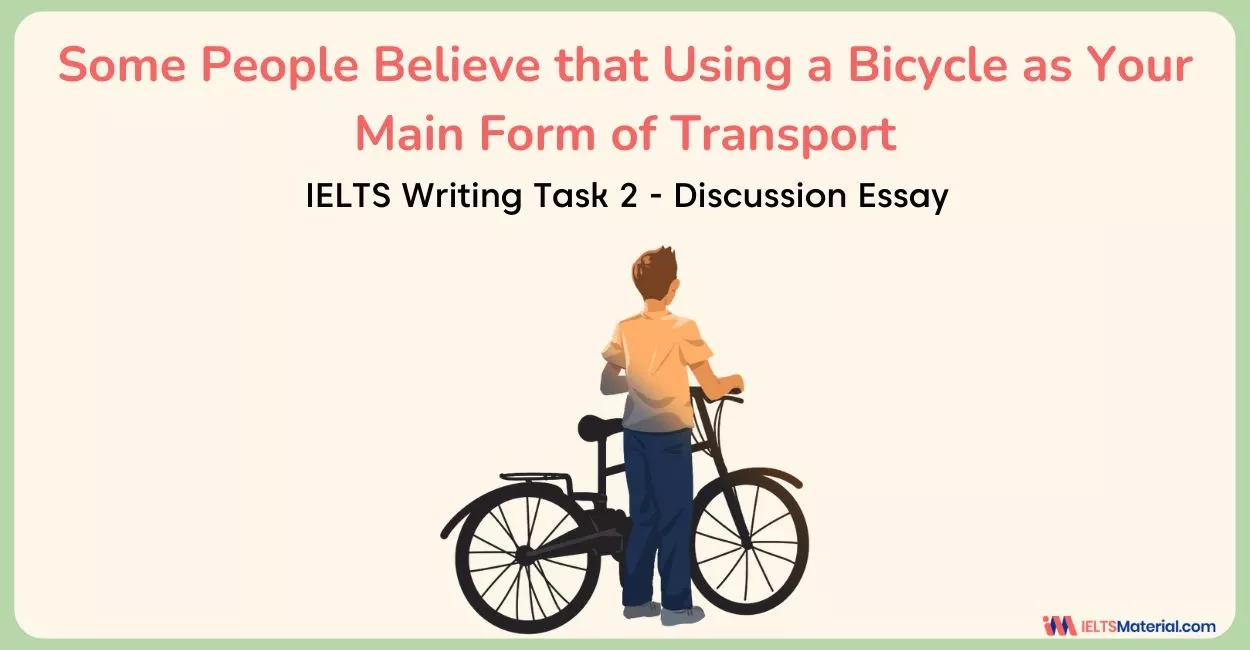
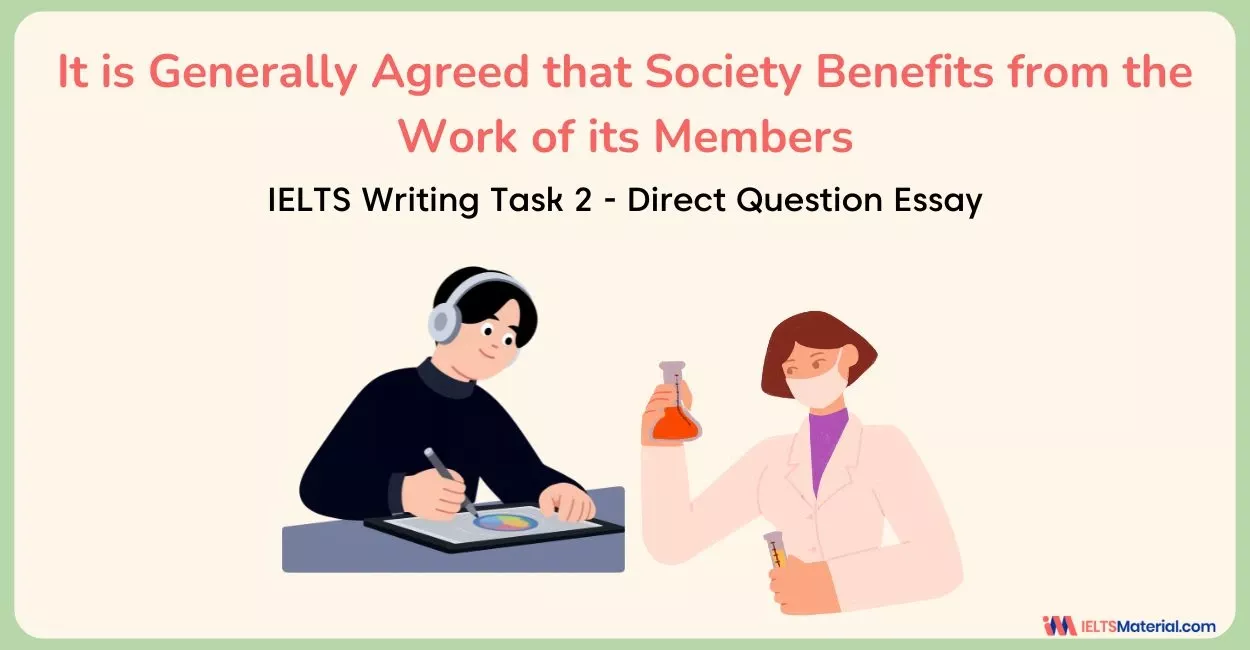
Recent Articles

Haniya Yashfeen
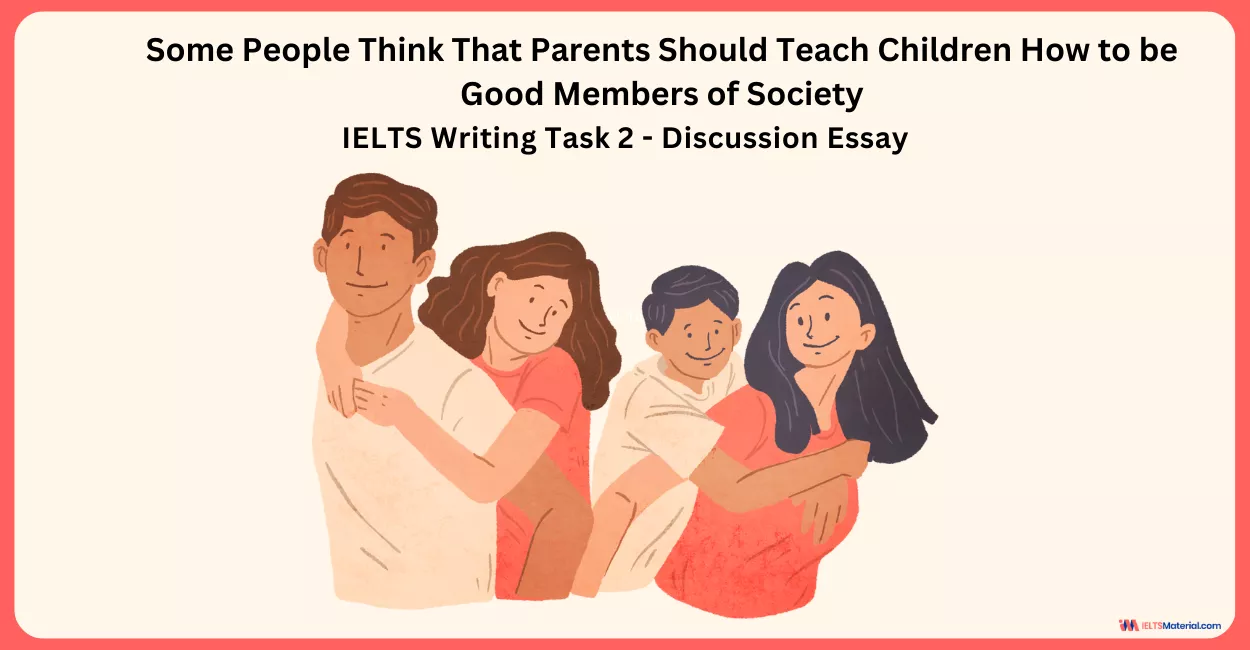

Prity Mallick

Kasturika Samanta


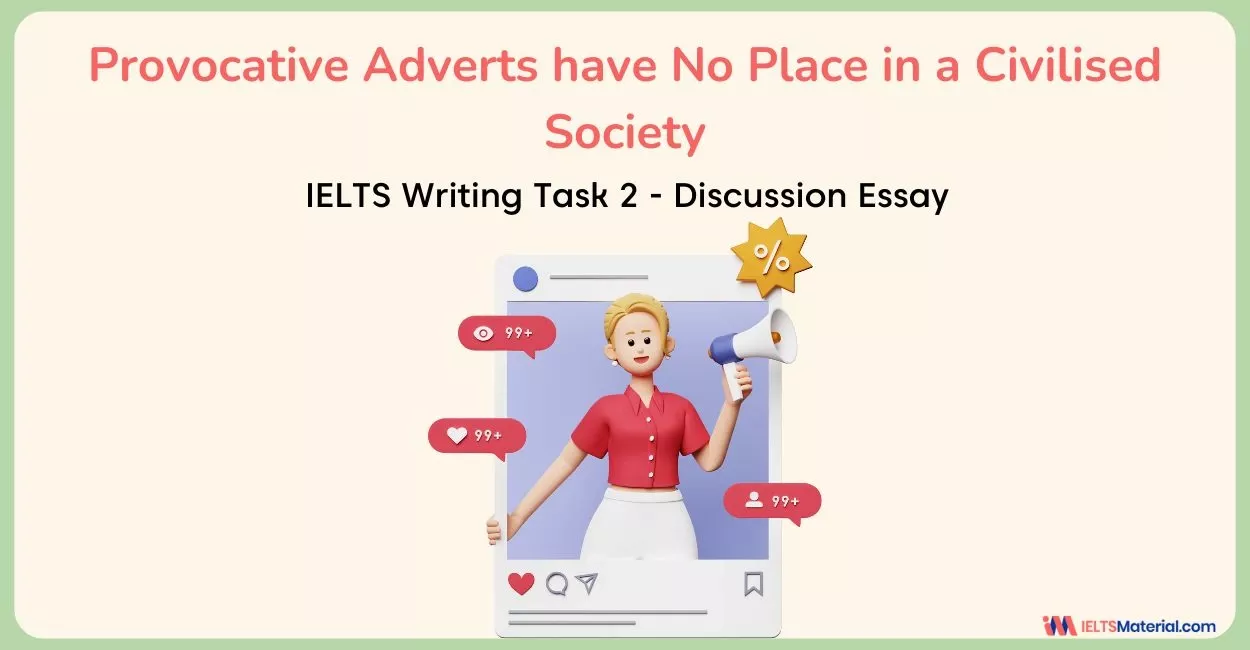
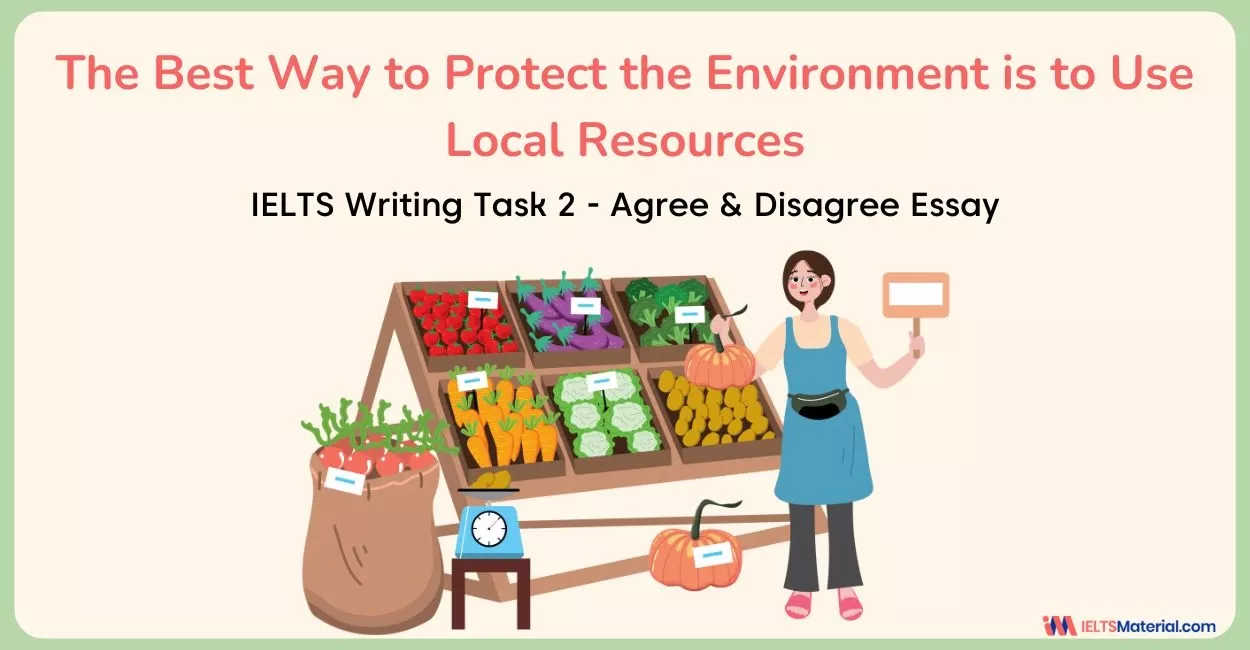


Post your Comments
4 Comments